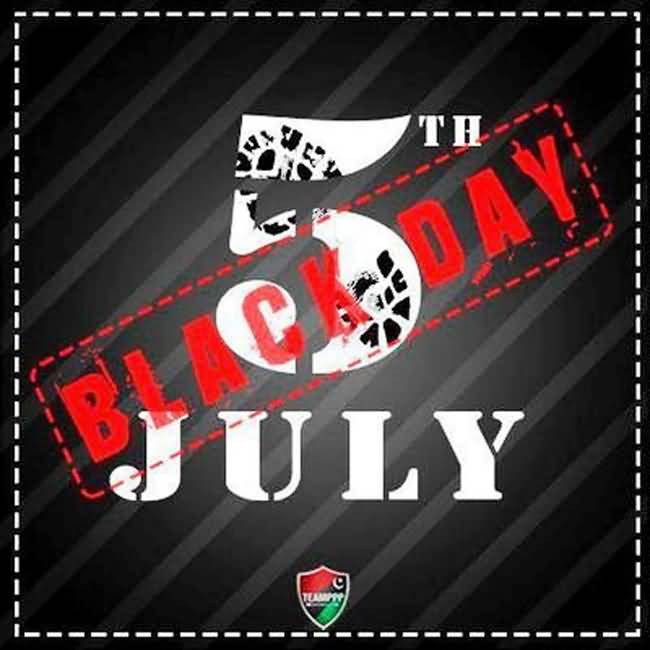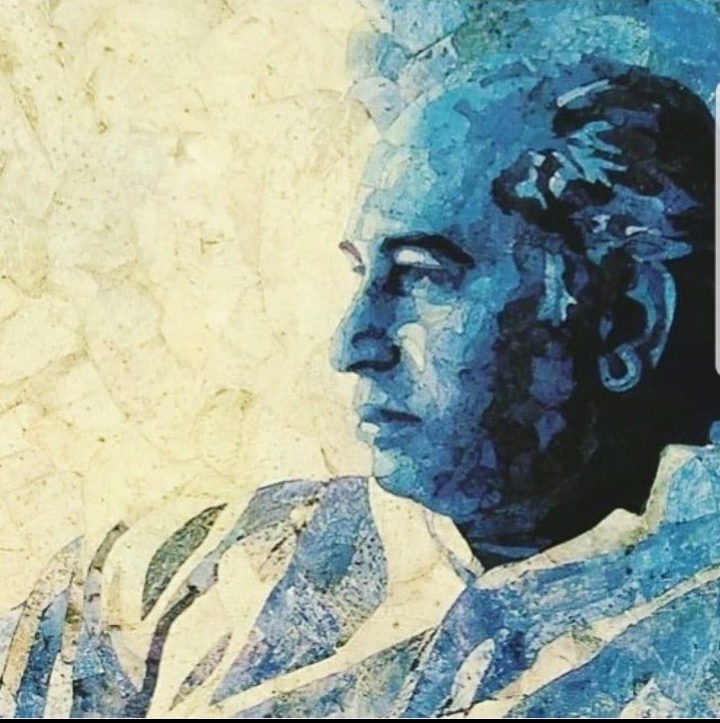
Zulfiqar Ali Bhutto, a great leader, served as the 9th Prime Minister of Pakistan from 1973 to 1977
By Dr. Abdul Razak Shaikh
Those who believe in democracy, observe July 5 as the Black Day of the political history of Pakistan, as on this day in 1977, then Army Chief General Zia overthrew an elected government of Prime Minister Zulfiqar Ali Bhutto. Zia’s treasonous coup and his rule for almost a decade is rightly condemned and none would dare find excuses in its favor.
Zulfiqar Ali Bhutto, a great leader, who served as the first elected and 9th Prime Minister of Pakistan from 1973 to 1977, and prior to that as the 4th President of country from 1971 to 1973. He was also the founder of the Pakistan People’s Party (PPP) and served as its Chairman till 1979.

Bhutto was a strong advocate of empowering small farmers. He always argued that if farmers were weak and demoralized then the country’s agricultural strength would be fragile, believing that farmers would not feel psychologically safe unless the country achieved self-sufficiency in food.
The last and crucial phase of his political career started in July 1977, after his government was overthrown, and ended in April 1979 when he was convicted under fake murder charges through a highly controversial trial and hanged by Zia-ul-Haq, which is condemned as Judicial Murder’.
Elections were held on March 7, 1977 and the Pakistan People’s Party won these elections but was accused by the opponents – Pakistan National Alliance, a conglomeration of right-wing parties, of rigging the elections. On March 14, 1977, the Alliance started a series of nationwide protests. The talks between the Alliance and Bhutto government were held in June 1977 and an agreement was reached, but it could not be implemented.
Operation Fair Play was the code name for the military coup d’état conducted on 5 July 1977 by Chief of Army Staff General Zia-ul-Haq, overthrowing the government of Prime Minister Zulfiqar Ali Bhutto. The pretext for the coup was the failure of the ruling PPP and the opposition PNA to reach an agreement regarding fresh elections. The code name Fair Play was intended to portray the coup as the benign intervention of an impartial referee to uphold respect for the rules and ensure free and fair elections.
While announcing the coup, Dictator Zia promised free and fair elections within 90 days. He arrested ZA Bhutto and his ministers, as well as other leaders of the PPP, dissolved the National Assembly and all provincial assemblies, suspended the Constitution, and imposed martial law. A four-member Military Council made up of Chief of Army Staff General Zia-ul-Haq as Chief Martial Law Administrator, the Chairman of the Joint Chiefs of Staff Committee, and the Chiefs of the Navy and the Air Force, took over government operations in the country. Bhutto was prosecuted on the fake charges of murder of political opponents.
Supreme Court of Pakistan’s Chief Justice Anwar ul Huq legitimatized the military intervention after issuing the Doctrine of Necessity verdict. On 24 October 1977, the Supreme Court began the appeal trial against Bhutto on charges of conspiracy to murder Nawab Muhammad Ahmed Khan Kasuri. Earlier Lahore High Court directly convicted Bhutto of death and the bench was headed by Chief Justice Molvi Mushtaque Ahmed. This case was not heard in the Session Court as required in law.
In 1977, the Supreme Court declared ZA Bhutto guilty of murder charges and upheld death punishment. Despite appeals of clemency sent by many nations, the government upheld the Supreme Court verdict, and following the Supreme Court orders, Bhutto was hanged on 4th April 1979. This was another Black Day in the Country. The Lovers of ZA Bhutto still pay tributes after passing 43 years of that day.
The promise of holding elections within 90 days was never fulfilled and thousands of PPP workers were arrested and convicted by Military Courts. Human rights violations were committed by punishing them with lashes who faced it bravely.
In 1985, General Zia announced the general election on non-party basis, with candidates standing as individuals rather than as representatives of a political party. PPP did not take part in non–party elections and later on Muhammad Khan Junejo from Sindh was made the Prime Minister of Pakistan, when he was elected as MNA in non-party polls. In 1988 General Zia dismissed the Junejo Government and soon in August 1988, Zia suddenly died when his aircraft crashed shortly after take-off from Bahawalpur Airport.
The military rule ended with the death of Dictator Zia ul Huq and many other key military administrators in the government. Following his death, the country returned to democracy and the PPP again came into power in 1988 when the general elections were held on party basis.
Zulfiqar Ali Bhutto faced tough times with courage and conviction. He never budged under pressure from oppressive military ruler.
For his supporters, Zulfiqar Ali Bhutto symbolizes the best in politics, his the struggle against poverty and inequality as well as sacrifices for democracy and civilian supremacy. The introspection from the politics of the years leading to the coup of July 5 1977 should teach our political leaders a lesson.
History will never forget the personality of Zulfiqar Ali Bhutto who sacrificed his life for the cause of poor people, democracy, and sovereignty of the country.
____________
 Dr. Abdul Razzak Shaikh, MBBS, Master in Health Services Management, who served in provincial health department, is President, People’s Doctors’ Forum Sindh
Dr. Abdul Razzak Shaikh, MBBS, Master in Health Services Management, who served in provincial health department, is President, People’s Doctors’ Forum Sindh